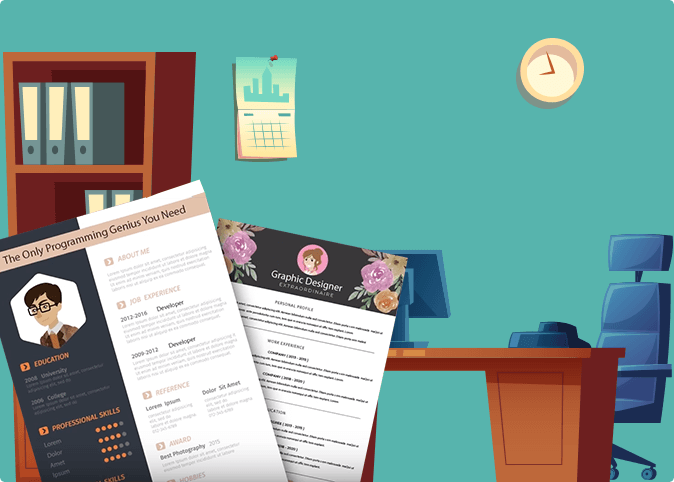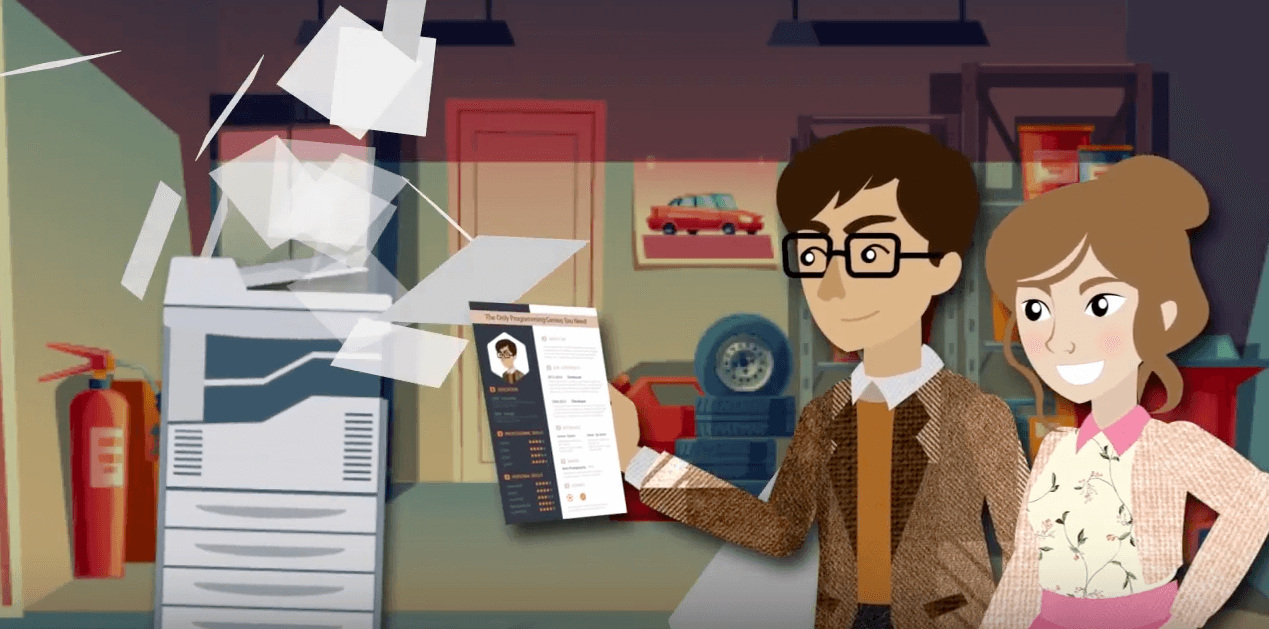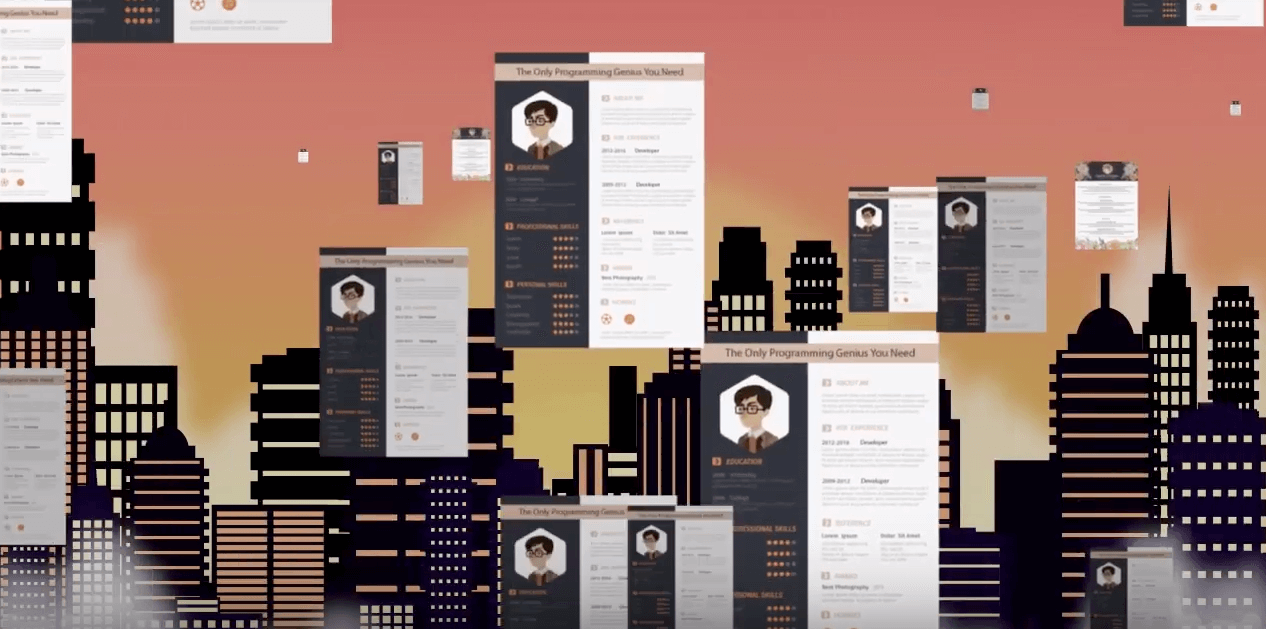Personal resume customization is the act of writing a brand-new resume (CV) for each job you apply for. Obliviously, many elements may be copied and pasted over, such as your qualifications and job history. However, since you are customizing your resume for a certain job, it may be prudent to highlight a few jobs and qualifications to suit the job you are applying for. In some cases, a customized resume may be just what is needed to land you the job you want.
HR Departments and Employers Can Spot Clone Resumes
Hire people for long enough, or work in an HR department for long enough, and you will start being able to recognize cloned CVs. There is something generic and almost bland about CVs that are suitable for sending out to any job. HR staff recognize them because they are often non-committal, they are bland, and they often generalize. Maybe sending out cloned resumes CVs is your most efficient way of applying for jobs but be aware that some of your rejections are not based on your work qualities, they are based on the fact that the employer spotted that your CV was a generic clone that you have probably sent out to 50 other companies before theirs.
Tailor Your Cover Letter for Minimum Wage Jobs
If you wish to apply for minimum wage jobs, then you can probably clone your CV and send it out to a bunch of different companies. If you opt for this method, then create a generic and bland CV that is concise and straight to the point, and then customize the cover letter instead. Even though your CV is not customized for the job, your cover letter is, which creates more impact when applying for jobs. Try to mention the company by name in your cover letter.
As a side note, if you have been unemployed for a while and you are a little worried that it is going to start looking bad on you, you should always write things such as how you are happy because you have been waiting for a position to open up in their company. It makes it seem less likely are hopelessly unemployed, and more like you have been biding your time to get the best job.
Do Not Be Afraid to Add More And More Details

Many online articles tell you to keep your resume short and simple, but that doesn't always have to be the case. If you are working towards getting a career, and if there is a job you really want, then you can write a larger resume and add things such as a personal summary resume section, a personal interests on resume section, personal information in resume section, and you can even set up your own personal resume website that you link to from your resume, (which is easy these days since most resumes are sent digitally and online).
Matching Your Skills to The Job in Hand with Careful CV Editing

Have you considered matching your personal skills for resume purposes? For example, if a job advert asks for certain skills, then you create a new CV just for that job, and you highlight the required skills that they request. It is not like lying, it is more like telling them what they want to hear.
Matching your personal skills for resume purposes may include things such as bringing certain skills to the top of your skills list or adding new skills that you didn't think to add previously. Matching your personal skills for resume purposes may also mean removing a few of your skills if you feel they detract from the required expertise. For example, if the required skills include caring for the welfare of animals, then maybe you should remove any mention of your fantastic animal skinning skills.
You Leave Yourself Open to Potential Mistakes When You Clone CVs
There are a bunch of jobs available, so you create a CV, and you send that CV to your favorite job openings. However, after a while and after very little response, you start spreading your net a little wider and applying for a number of different jobs. The trouble is that writing a CV for each job is time-consuming and it is frustrating when you hear nothing back, so you start cloning your CVs and sending them out. The problem is that this leads to potential mistakes.
You may find yourself sending a CV with incorrectly written parts. The mistakes are often as simple as they are common. For example, the previous job may have been located down the street, so you mention it in your CV, and you forget to take it out when you clone your CV for use with other companies.
Another common mistake involves adding things that have no connection to the employer. Maybe the original mentioned something about the job, in particular, that is not part of the next job. Maybe you mentioned a task that exists in a job, you copy the CV, and you send it to another company where the task doesn't exist.
The most common and stupefying errors that CV cloners make is to clone their own mistakes. Let’s say that you write a CV and you think it is perfect, so you send it off and then you realize you have made a few spelling errors that your spellchecker missed. So, you copy your newly checked CV and send it off to a bunch of other jobs, only to then realize the CV has more spelling and grammar mistakes. You have now sent out the same mistakes to the many jobs you applied for, and you did it because you cloned your CV rather than writing a new one for each company.
Do Not Make These Customization Mistakes
Cloning/copying a resume and sending it out to different companies has its problems, but that doesn't mean that customized resumes are problem free.
One of the most common modern-era mistakes involves social media, especially Facebook and LinkedIn. For example, some people tell half-truths on their resumes, and they are exposed as liars on their Facebook page. More commonly, a person when customizing a resume for a certain company claims they love everything that the company does and then says something different on their LinkedIn page. For example, saying that they are outdoors persons when applying for outdoor jobs, while saying he or she is a homebody on their LinkedIn page.
Some people write customized resumes for different companies, but they rush their efforts because they are frustrated by the lack of responses they get. As a result, they make rookie mistakes such as praising things that have nothing to do with the company. They do not conduct thorough research and make a fool of themselves because they rushed their resume.
The most common mistakes include spelling and grammar checking, and this is especially true when somebody rushes their resume writing. Remember the earlier problem where people make a single spelling and grammar checker mistake and end up sending it out to a bunch of different employers because they cloned their resume? A similar thing happens when people rush their customized resumes because they end up sending out a bunch of imperfect resumes with spelling and grammar mistakes in them.
Keep Track of All Your Resumes

As a final note of caution and advice, make sure you keep track of all the CVs that you send out. After you have created your customized CV, you need to create a file and put it in the file. Label the file the name of the company you are applying for. Inside the file, you should keep your copy of the CV, so you know what you sent out. You should also keep a copy (screenshot maybe) of the job you have applied for. You also need to add a date to a document inside the file.
Do all of this because you need to keep track of what you have said to which company. There is nothing more embarrassing than getting a call or message from a company asking for an interview, and you cannot remember which job is on offer or when you applied. Plus, if you file away your customized CVs, and if you keep track of what you sent to whom, then you may study which of your CVs are working the best. The ones that get interviews may be the best performing CVs, which means they are the ones you should learn from as you write your future CVs. Finally, if you keep careful notes on what you send and where you send it, then you will not accidentally send a resume to the same company for the same job.




